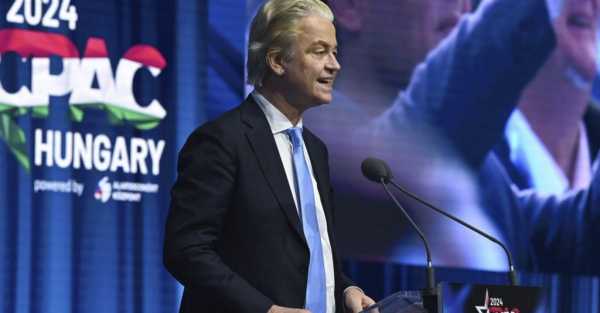
Anti-Islam politician Geert Wilders is on the verge of brokering a four-party coalition in the Netherlands six months after coming in first in national elections.
It opens the prospect that yet another European Union nation will veer towards the hard right weeks ahead of EU-wide elections.
Mr Wilders has said he does not expect to become prime minister himself, because he remains too extreme for his coalition partners, but his Party for Freedom would be the driving force in a four-party coalition.
With hard right and populist parties now part of or leading a half dozen governments in the 27-nation bloc, they appear positioned to make gains in the June 6-9 EU polls.
“I hope we will get there. I think we will get there. I cannot see it going wrong,” Mr Wilders told the broadcaster NOS early on Wednesday after the four parties reached a deal on government financing, the last major stumbling bloc in the talks.
It remains unclear who will become prime minister.
“That is still crucial. If you want a government to succeed, you need a prime minister that unites,” said Pieter Omtzigt, leader of the centrist New Social Contract party.
Outgoing prime minister Mark Rutte’s centre-right People’s Party for Freedom and Democracy and the populist Farmer Citizen Movement are also in the coalition talks.
Mr Wilders’ Party for Freedom won 37 seats in the 150-seat lower house of the Dutch parliament, and the four parties combined hold a comfortable majority of 88 seats.
After two decades in the opposition, Mr Wilders seemed to have a shot at leading a nation that long prided itself on its tolerant society, but he has stepped aside in the interests of pushing through most of his agenda.
From Finland to Croatia, hard-line right parties are part of European governing coalitions, and hard right prime ministers are leading Hungary, Slovakia and Italy.
Sourse: breakingnews.ie